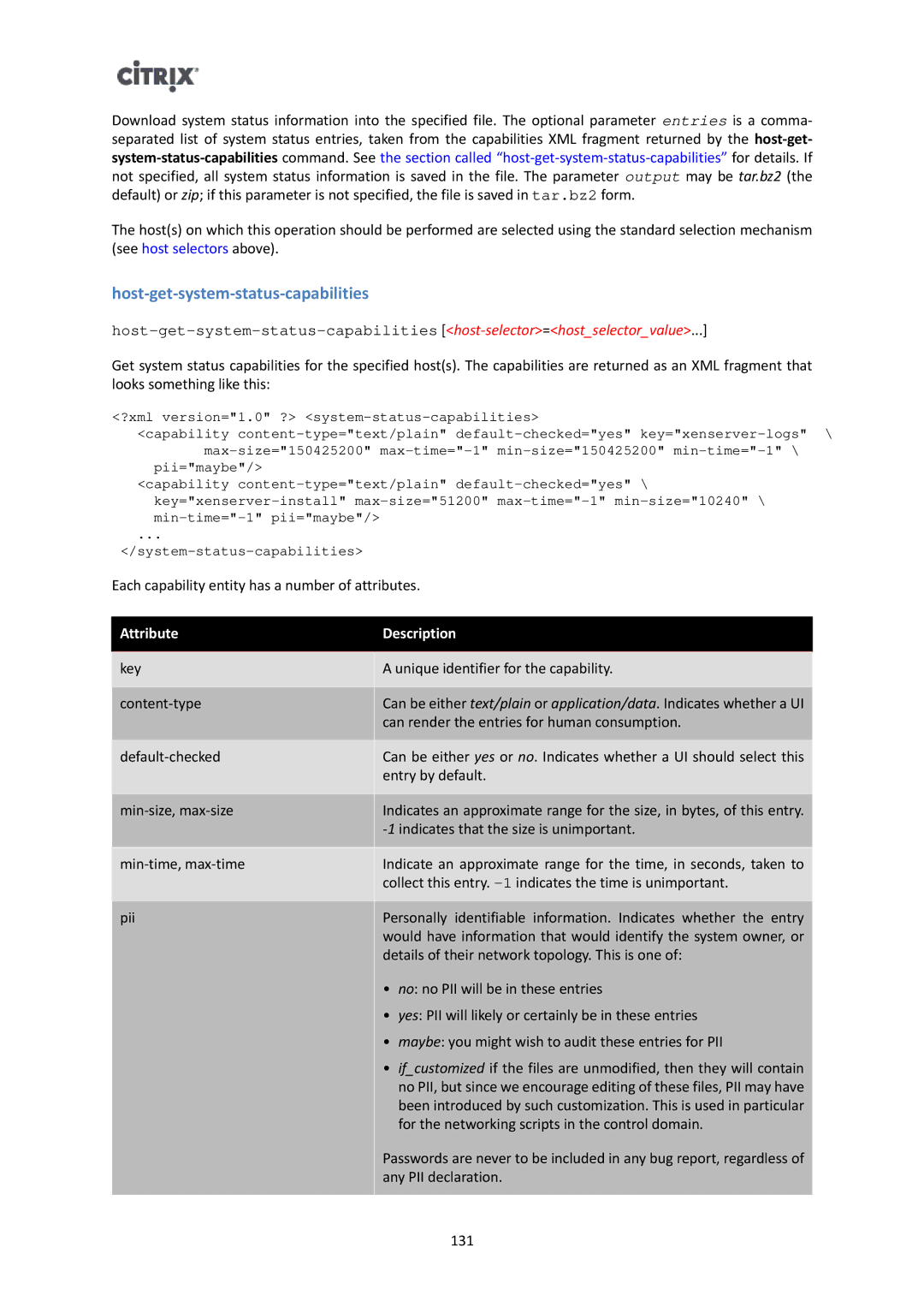Download system status information into the specified file. The optional parameter entries is a comma- separated list of system status entries, taken from the capabilities XML fragment returned by the
The host(s) on which this operation should be performed are selected using the standard selection mechanism (see host selectors above).
host-get-system-status-capabilities
Get system status capabilities for the specified host(s). The capabilities are returned as an XML fragment that looks something like this:
<?xml version="1.0" ?>
<capability
pii="maybe"/>
<capability
...
Each capability entity has a number of attributes.
Attribute | Description | |
|
| |
key | A unique identifier for the capability. | |
|
| |
Can be either text/plain or application/data. Indicates whether a UI | ||
| can render the entries for human consumption. | |
|
| |
Can be either yes or no. Indicates whether a UI should select this | ||
| entry by default. | |
|
| |
Indicates an approximate range for the size, in bytes, of this entry. | ||
| ||
|
| |
Indicate an approximate range for the time, in seconds, taken to | ||
| collect this entry. | |
|
| |
pii | Personally identifiable information. Indicates whether the entry | |
| would have information that would identify the system owner, or | |
| details of their network topology. This is one of: | |
| • | no: no PII will be in these entries |
| • | yes: PII will likely or certainly be in these entries |
| • | maybe: you might wish to audit these entries for PII |
| • | if_customized if the files are unmodified, then they will contain |
|
| no PII, but since we encourage editing of these files, PII may have |
|
| been introduced by such customization. This is used in particular |
|
| for the networking scripts in the control domain. |
| Passwords are never to be included in any bug report, regardless of | |
| any PII declaration. | |
|
|
|
131
